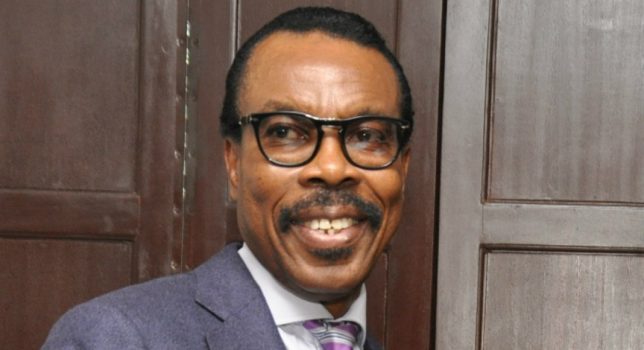 President Muhammadu Buhari has appointed the Chief Executive Officer of Financial Derivatives, Mr. Bismarck Rewane as head of the Minimum Wage Technical Advisory Committee.
President Muhammadu Buhari has appointed the Chief Executive Officer of Financial Derivatives, Mr. Bismarck Rewane as head of the Minimum Wage Technical Advisory Committee.
Inaugurating the committee on Wednesday before the Federal Executive Council (FEC) meeting, Buhari restated his commitment to the implementation the new minimum wage of ₦30,000 as recommended by the Tripartite Committee.
He said the committee would recommend modalities for the implementation of the new minimum wage in such a manner as to ‘minimize its inflationary impact as well as ensure that its introduction does not lead to job losses’.
His words: “The work of this Technical Committee will be the basis of a Finance Bill which will be submitted to the National Assembly, alongside the Minimum Wage Bill.
“I want to make it clear that there is no question about whether the National Minimum Wage will be reviewed upwards. I am committed to a review of the Minimum Wage.
“Also, it is important to explain that even though the subject of a National Minimum Wage is in the Exclusive Legislative List, we have been meeting with the State Governors because it is imperative that the Federal Government carries the State Governments along in determining any upward review of the minimum wage for workers.
“This is especially necessary considering the prevailing public sector revenue challenges, which have made it extremely difficult for some of the governors to pay workers as and when due.”
He disclosed that the Federal Government has on its part made adequate provision for the increase of the Minimum Wage in its 2019 Budget proposals which was submitted to the National Assembly on December 19, 2018.
“However, we anticipate that after the new minimum wage has been passed into law we will be going into negotiations for salary review for all the workers who are already earning above the new minimum wage. It is therefore important that we are properly prepared to meet these demands.
“We must, therefore, look at ways of implementing these consequential wage adjustments in a manner that does not have adverse effects on our national development plans, as laid out in the Economic Recovery and Growth Plan (ERGP).
”The ERGP sets appropriate targets for levels of capital expenditure, public debt, inflation, employment, et cetera,” he added.

Dangote Seeks Probe Of NMDPRA Chief Over Alleged $5m School Fees
Dangote Announces ₦739 Per Litre Petrol Price Cut Nationwide
Supreme Court Upholds Death Sentence For Maryam Sanda, Dismisses Appeal
Chris Ngige Remanded In Kuje Prison Over Alleged ₦2.2bn Fraud